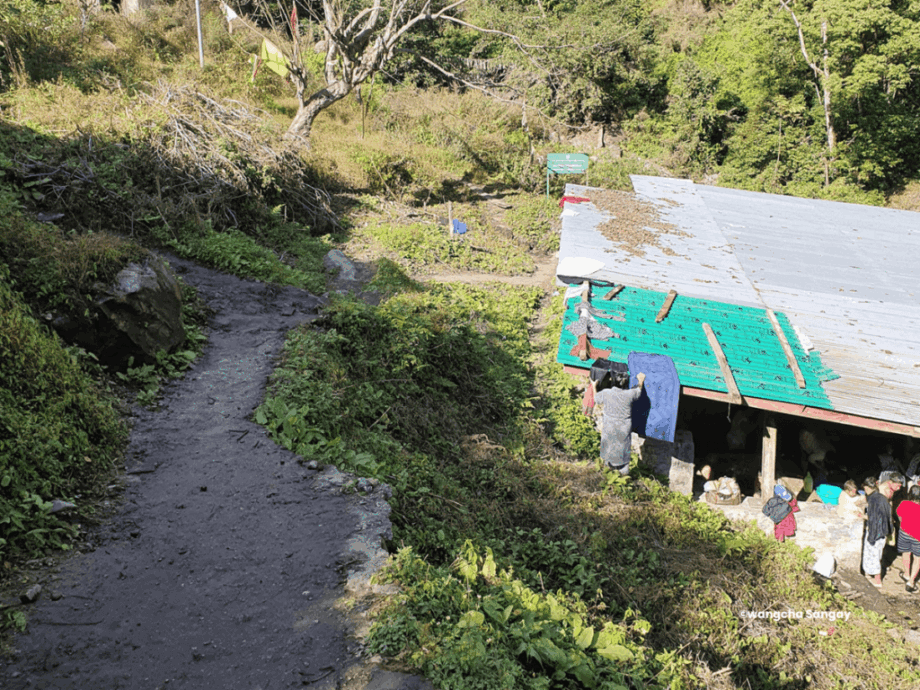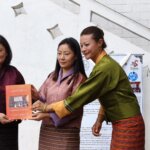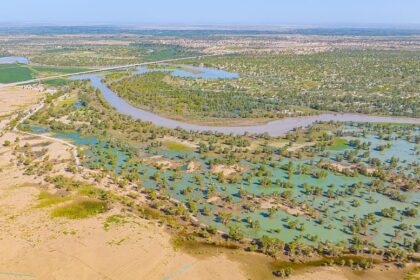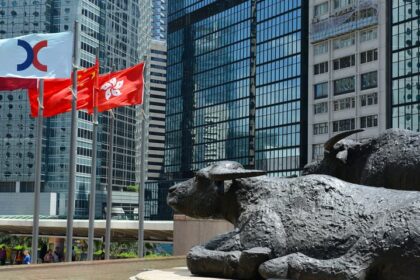Bhutan’s Hot Springs Under Scrutiny: A New Challenge Emerges
Bhutan, long celebrated for its low crime rates and strong social fabric, is facing a new and unexpected challenge: a rise in petty crime and substance abuse at its revered hot springs, known locally as tshachus. These natural sites, cherished for their therapeutic and spiritual significance, have become seasonal gathering points for locals and visitors alike—especially during the winter months. However, recent incidents have prompted public concern, parliamentary debate, and calls for increased police presence to safeguard these communal spaces.
- Bhutan’s Hot Springs Under Scrutiny: A New Challenge Emerges
- Why Are Hot Springs Becoming Crime Hotspots?
- Parliamentary Debate and Calls for Action
- Crime Trends in Bhutan: A Broader Perspective
- Substance Abuse: A Growing Concern
- Police Response: Surveillance, Advocacy, and Community Policing
- Hot Springs: Balancing Tradition, Tourism, and Security
- Looking Ahead: Policy, Prevention, and Hope
- In Summary
Why Are Hot Springs Becoming Crime Hotspots?
Bhutan’s hot springs, including Chubu Tshachu (Punakha), Duenmang Tshachu (Zhemgang), Gasa Tshachu (Gasa), Dur Tshachu (Bumthang), Gelephu Tshachu (Sarpang), and Koma Tshachu (Punakha/Lhuntse), have traditionally been places of healing and socialization. In recent years, however, these sites have seen a surge in visitor numbers, including youth from urban centers. This influx has coincided with a rise in theft, domestic disputes, and even signs of organized criminal activity, particularly at more frequented locations like Chubu Tshachu.
Local communities, such as residents of Tsachuphu, have voiced growing unease over antisocial behavior. The convergence of large groups, sometimes unsupervised youth, and the availability of substances like alcohol and drugs has created an environment where petty crime can flourish. The situation has become serious enough to warrant attention at the highest levels of government.
Parliamentary Debate and Calls for Action
The issue reached the National Assembly, where Namgay Wangchuk, MP for Lingmukha-Toedwang, pressed the Minister for Home Affairs, Tshering, for concrete strategies to address the problem. Wangchuk emphasized the need for preventive security measures to curb drug abuse, theft, and disturbances that increasingly affect both visitors and residents at these public venues.
Minister Tshering acknowledged the persistent challenges posed by drugs, alcohol, and smoking, noting that these are not issues a few organizations can solve alone. He stressed the importance of collective action, stating:
“A few organisations alone cannot solve these problems. But if we act together, there is hope that we may eventually eradicate them.”
Despite limited personnel and resources, the Royal Bhutan Police (RBP) continues to address these issues through a combination of surveillance, advocacy, and community engagement.
Crime Trends in Bhutan: A Broader Perspective
While the situation at hot springs is drawing attention, it is part of a broader shift in Bhutan’s crime landscape. Official statistics show that, although the country maintains relatively low overall crime rates, certain offenses—particularly drug abuse, larceny, and domestic violence—are on the rise.
According to the Royal Bhutan Police, the number of substance abuse cases dropped slightly from over 1,570 in 2023 to just over 1,500 in 2024. Incidents of illicit trafficking of narcotic drugs and psychotropic substances also decreased, but cases of illegal possession saw a minor uptick. Larceny cases fell from nearly 290 in 2023 to around 260 in 2024. However, battery and domestic violence cases increased, a trend attributed to greater awareness and reporting rather than a surge in actual incidents.
Officials from the RBP highlight that the rise in drug-related offenses may be due to increased awareness and reporting, as well as ongoing efforts to combat illicit substances in the community. The most frequently abused substances include marijuana, pharmaceutical drugs (such as SP+ and N10, both banned in India), and solvents like paint thinner and dendrite adhesive.
Substance Abuse: A Growing Concern
Substance abuse, particularly among youth and unemployed individuals, has become a significant concern in Bhutan. The RBP has responded with a multifaceted approach, including random drug testing, surprise inspections, and the deployment of trained Narco Dogs for drug detection. In collaboration with The PEMA Secretariat, the RBP apprehended 1,764 individuals for substance abuse in a single year, with 953 cases attributed to drug use.
Drug smuggling routes from India, especially through border regions like Phuentsholing and Samdrupjongkhar, have contributed to the problem. The RBP continues to work with Indian authorities to intercept the flow of banned pharmaceutical drugs into Bhutan. The southern regions of the country are particularly affected, with a shift towards the abuse of solvents as law enforcement clamps down on pharmaceutical drugs.
Community Impact and the Role of Awareness
Authorities emphasize the importance of community vigilance and parental involvement in curbing substance abuse. Awareness programs in schools and colleges aim to educate young people about the dangers of drug use and the long-term consequences for their futures. The RBP has conducted 111 advocacy programs, reaching over 44,000 individuals across all 20 dzongkhags (districts), engaging students, business operators, armed forces, drivers, and government officials.
Police Response: Surveillance, Advocacy, and Community Policing
To address the rise in crime at hot springs and other public spaces, the RBP has implemented several key strategies:
- Surveillance Cameras: The RBP, in collaboration with local governments and the Ministry of Home Affairs, has encouraged the installation of CCTV systems. Currently, 860 cameras are operational in key towns, with an additional 347 being installed in Gelephu and Sarpang.
- Community Police Service Centres: These centers have been established in remote gewogs (village blocks) to promote a collaborative approach with local governments and extend the reach of law enforcement into rural areas.
- Seasonal Police Deployment: In the past, police officers were stationed at Chubu Tshachu during peak winter seasons. However, this practice was discontinued due to manpower shortages, particularly during the COVID-19 pandemic.
- Integrated Check Post Management System: Enhanced coordination and strict patrols along highways and at key entry points help prevent the movement of illicit substances and monitor suspicious activities.
Despite these efforts, the RBP faces challenges related to limited personnel and resources. The need for a sustained, multi-agency approach is clear, as is the importance of community involvement in crime prevention.
Hot Springs: Balancing Tradition, Tourism, and Security
Bhutan’s hot springs are more than just natural attractions—they are integral to the country’s cultural and spiritual heritage. Many Bhutanese believe in the healing properties of these waters, and annual pilgrimages to tshachus are a cherished tradition. The rise in crime threatens not only public safety but also the sanctity and reputation of these sites.
Tourism, a key driver of Bhutan’s economy, adds another layer of complexity. As more visitors flock to hot springs, the risk of overcrowding and associated problems increases. Ensuring the safety and well-being of both locals and tourists is essential for maintaining Bhutan’s image as a peaceful and harmonious society.
Community Voices and Local Concerns
Residents living near hot springs have expressed concern about the changing atmosphere at these sites. The presence of unsupervised youth, the availability of alcohol and drugs, and the occasional outbreak of violence or theft have all contributed to a sense of unease. Community leaders are calling for a balanced approach that preserves the traditional role of hot springs while addressing modern security challenges.
Looking Ahead: Policy, Prevention, and Hope
The government’s response to rising crime at hot springs reflects a broader commitment to public safety and social harmony. While official records show only a handful of reported cases at Chubu Tshachu in recent years—a motor vehicle accident in 2022 and a battery case in 2023—authorities admit that unreported incidents are likely. The seasonal deployment of police officers, though effective, is constrained by manpower limitations.
Moving forward, the focus will be on strengthening surveillance, expanding community policing, and enhancing advocacy efforts. The RBP’s ongoing collaboration with local governments, schools, and community organizations is central to this strategy. As Minister Tshering noted, lasting solutions will require the collective effort of all stakeholders.
In Summary
- Bhutan’s hot springs are experiencing a rise in petty crime and substance abuse, prompting public concern and parliamentary debate.
- Increased visitor numbers, especially youth from urban areas, have contributed to incidents of theft, domestic disputes, and drug-related offenses at these sites.
- The Royal Bhutan Police is responding with enhanced surveillance, community policing, and advocacy programs, despite limited resources.
- Substance abuse, particularly among youth, is a growing concern nationwide, with drug smuggling routes from India exacerbating the problem.
- Community involvement, awareness campaigns, and multi-agency cooperation are key to addressing these challenges and preserving the sanctity of Bhutan’s hot springs.
- Maintaining a balance between tradition, tourism, and security will be essential for the future of these cherished sites.












